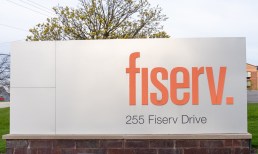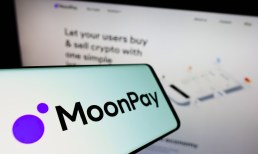Blockchain projects, both private and public, are gaining ground, and have recently been getting vocal support from some of the highest-ranking lawmakers. In one example, as reported by Cointelegraph, in France, the Minister of Economy and Finance Bruno Le Maire said blockchain is a “priority” for the government.
The minister made his statement in an interview with a French magazine, Capital, and added that as much as the equivalent of $5 billion USD will be invested in tech innovations, which includes blockchain — even as the country competes with Chinese and American technological efforts.
There also exists the PACTE Act in France, which was passed through the country’s national assembly. The minister said the bill represents “an unprecedented and attractive legal framework for token issuers and digital asset service providers.” Blockchain will be extended into the country’s industrial sectors, according to reports. In addition, there may be changes to taxation and legal frameworks governing blockchain and cryptos, according to Le Maire. Blockchain can also spur the development of greater energy efficiency, and help financial firms’ efforts to stanch money laundering.
In reference to central bank efforts on digital currencies, Le Maire said that “such a project is not mature in the short term.” Apart from that commentary, but still germane to blockchain use in large-scale banking and financial activities, and as recounted in this space earlier in the week, the International Monetary Fund (IMF) and the World Bank are partnering to launch a private blockchain and “quasi-cryptocurrency.” The Learning Coin is accessible only to multinational agencies based in Washington, and has no monetary value. The coin will instead be used to study technologies tied to crypto assets.
Insurance Via Blockchain
Separately, in terms of individual company initiatives, and with a focus on the insurance sector, consulting and professional services company Accenture has partnered with Generali Employee Benefits (GEB), creating a blockchain solution tied to employee benefits.
Advertisement: Scroll to Continue
Forbes reported that the participants can access data through smart contracts, which reduce processing errors. In addition, that reconciliation is automatic across the distributed ledger technology (DLT) architecture. Services span life insurance, short- and long-term disability, accident and healthcare, and they serve multinationals that centrally manage insurance activities and financials tied to those activities. The companies have pointed to cost and time savings as a result of the blockchain initiatives, and a movement away from batch executions and manual processes.
Daniele Presutti, head of Accenture’s European insurance practice, said, according to Forbes, “You can share data today, but blockchain allows you to see the data, and it’s a full view of the data that’s relevant to them. It is important to note that only stakeholders that need to see the data will have access. And, if anyone tries to tamper with, duplicate or modify any part of the record, all stakeholders will know. … Accenture designed, implemented and deployed the blockchain solution over the last six months, using a team located in the U.K., U.S. and Latvia. Accenture engaged with the key stakeholders, including GEB and the involved clients, to tailor the DLT solution to the real needs of the employee benefits network. It also ran the overall project governance.”
The link between Accenture and GEB comes in the wake of the Blockchain Insurance Industry Initiative (B3i) that began three years ago.




